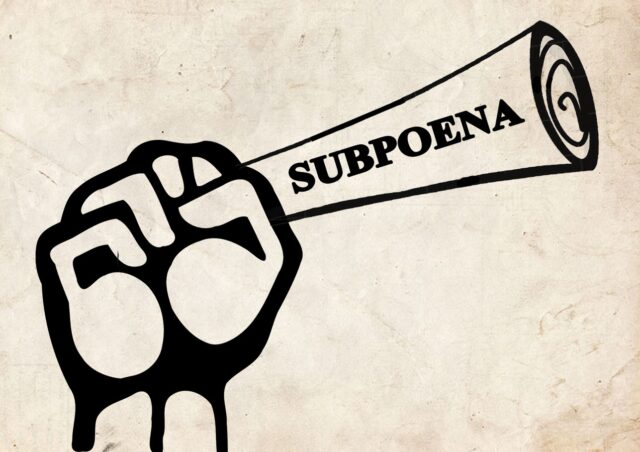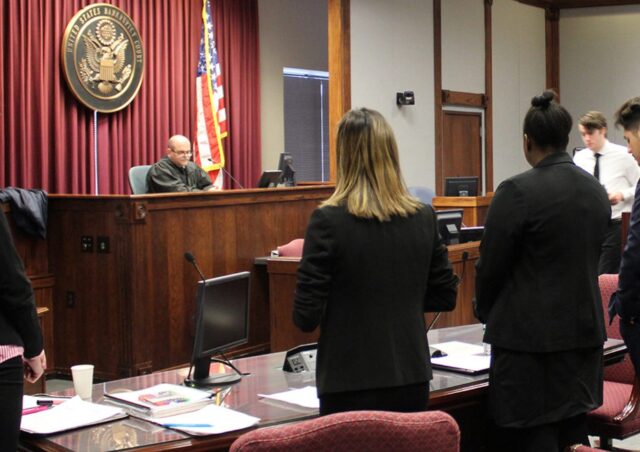
If you’re a witness in a civil case, it can be stressful. If you’re called to be a witness in something like a personal injury case, you’ll be served with a subpoena. The subpoena will then ask you to testify at a hearing or trial. A subpoena might also ask you to go to a deposition or provide evidence.
A deposition, according to Abels & Annes, P.C., a personal injury law firm, is intended to be a time for lawyers in a case to get more information about the situation a lawsuit is based on. Depositions are in an office or conference room typically. You may have to attend a deposition and a trial, depending on the specifics of the case.
First and foremost, if you receive a subpoena, don’t ignore it. The following are some of the main things to know about being a witness, especially in a civil case.
What is a Subpoena?

A subpoena is a court order that requires you to attend a deposition, go to court, or provide something like a physical object or a document that’s related to a case. If you receive a witness subpoena, it requires you to show up to court or deposition at a certain time.
It does not, however, require you to say anything or testify.
Subpoenas can be issued by an attorney or by a party in the legal case.
Subpoenas are used in both civil and criminal cases. A sheriff’s deputy usually serves a subpoena.
There are personal deliveries, which means the subpoena is taken by hand by a deputy to a witnesses’ home.
There’s also posted delivery on the door if the person isn’t home.
Sometimes a subpoena is delivered to your place of work, or it might be left with someone else at your home if you aren’t there.
There are two types of subpoenas.
There’s a subpoena ad testificandum, which is a witness subpoena. There’s also a subpoena duces tecum, which requires you to produce some type of evidence.
A subpoena is different from a court summons. A summons is what is given to a party in the case, not a witness. For example, if you were being sued, you would get a court summons and not a subpoena.
You don’t have the right to ignore a subpoena, and if you do, there are penalties. You might be considered in contempt of court. Being in contempt of court can include civil and criminal penalties such as fines or jail.
What to Do First

If you receive a subpoena to be a witness, the first thing to do is figuring out why. For example, you might be a witness to a traffic accident.
You probably won’t need an attorney if you’re a witness. With that being said, there are situations where you could face criminal liability as a witness, but not as a witness in a civil case.
You have to go to a deposition or court even if you don’t think you have any relevant information or anything to add to the case.
If you can’t go, you need to let the court know as soon as possible, and they’ll make a decision on whether you can be absent.
There are certain situations where you can apply to be excused as a witness, such as if you live a certain number of miles away from the court.
When you receive a subpoena, you have to acknowledge you received it. The subpoena should tell you how to go about doing that. If you think you’re unable to provide the needed information, tell the court right away.
Discovery

Before a trial, there is a phase known as discovery. Discovery is a formal process where the parties involved in a legal matter can exchange information and learn more about evidence and witnesses that will be part of a trial.
The idea behind the discovery is that it helps parties prepare and avoid an ambush at a trial. Both sides should be prepared to answer evidence accordingly.
A deposition, as was touched on above, is one of the most common parts of the discovery process.
A deposition is an out-of-court statement, and you give it under oath. Anyone involved in a case, including a witness, might be called to give a deposition.
A deposition can be presented in court as a video or a written transcript. Typicallyeither party can take the deposition of the opposing party or any witness.
If you’re a witness in a civil case, the answers you provide during a deposition can be read into evidence if you can’t be there.
A deposition may include an oral examination, and then the opposing side will do a cross-examination.
You might also have to answer written questions, which are called interrogatories. You’re under oath when answering those as well.
Testifying

You may or may not end up having to go to court as a witness.
If you have to go to court, you should bring the subpoena you received and anything else requested on it.
You’ll wait outside the courtroom until it’s time for you to testify.
When you’re called to testify, you move up front, and you’re sworn in.
Remember, you have to tell the truth because lying is called perjury, and it can carry a long jail sentence. If you make a mistake, which is common, just make sure you correct it.
It’s normal to be nervous if you’re called as a witness in any kind of legal situation.
Just remember to relax, tell the truth, and be polite and respectful. Don’t ignore the subpoena, and don’t avoid where it’s asking you to be.
Finally, if you go to a deposition or trial, listen closely to everything being asked of you, and think before responding. Don’t volunteer a lot of extra information and if you can’t remember something, then say that. It’s fine not to remember something, but don’t lie if you can’t.









